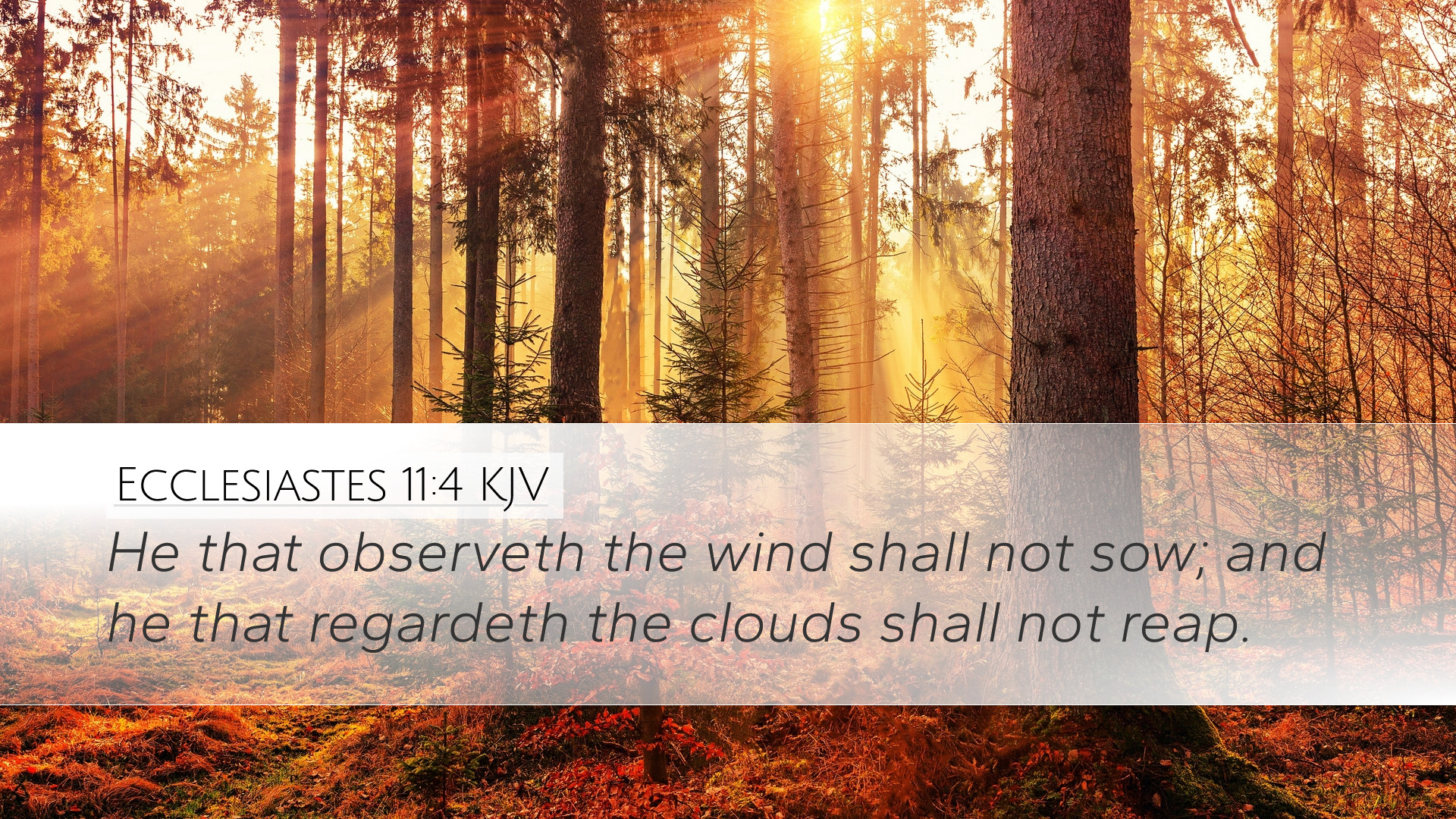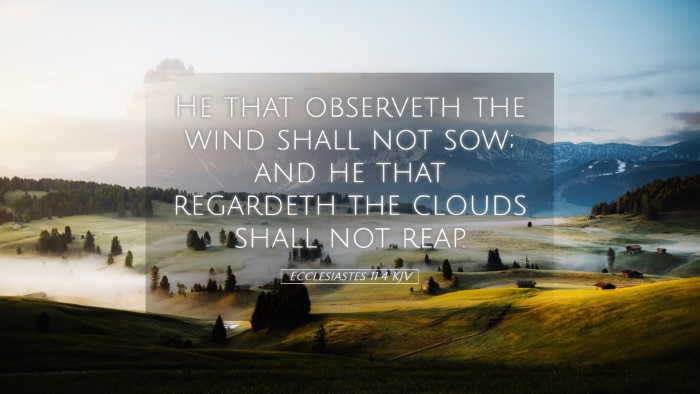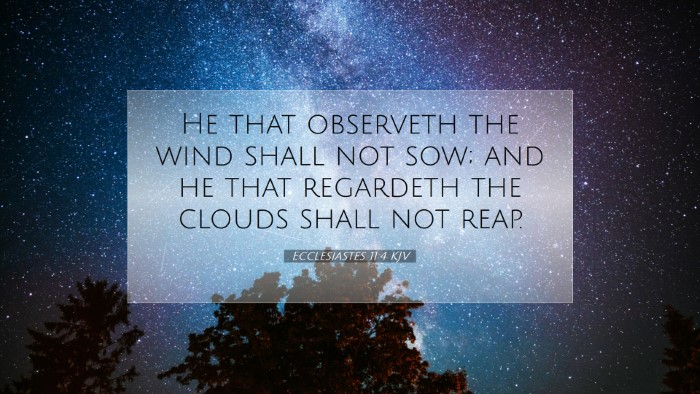Old Testament
Genesis Exodus Leviticus Numbers Deuteronomy Joshua Judges Ruth 1 Samuel 2 Samuel 1 Kings 2 Kings 1 Chronicles 2 Chronicles Ezra Nehemiah Esther Job Psalms Proverbs Ecclesiastes Song of Solomon Isaiah Jeremiah Lamentations Ezekiel Daniel Hosea Joel Amos Obadiah Jonah Micah Nahum Habakkuk Zephaniah Haggai Zechariah MalachiEcclesiastes 11:4
Ecclesiastes 11:4 KJV
He that observeth the wind shall not sow; and he that regardeth the clouds shall not reap.
Ecclesiastes 11:4 Bible Commentary
Commentary on Ecclesiastes 11:4
Ecclesiastes 11:4 (KJV): "He that observeth the wind shall not sow; and he that regardeth the clouds shall not reap."
Introduction
The verse Ecclesiastes 11:4 encapsulates a profound truth about human hesitation and the consequences of waiting for perfect conditions. In the context of the teachings of Ecclesiastes, this verse highlights the folly of inaction inspired by uncertainty, which often leads to missed opportunities.
Contextual Background
As part of the larger discourse in Ecclesiastes, this verse reflects the Preacher’s reflections on the unpredictability of life and the importance of diligent action despite adverse circumstances. The preceding chapters lay a foundation by elaborating on the transience of life, the inevitability of death, and the vanity of human pursuits without divine acknowledgment.
Exegesis of the Verse
This verse presents two metaphors: observing the wind and regarding the clouds. Both metaphors symbolize the tendency of individuals to wait for ideal conditions before undertaking their responsibilities.
-
Observing the Wind:
This phrase suggests a paralysis induced by over-analysis or concern for uncertainties. Matthew Henry notes that the one who continually examines the external conditions will find reasons not to engage in the necessary labor of sowing seeds. Overthinking the challenges can inhibit action.
-
Regard to the Clouds:
Albert Barnes explains that this refers to someone who looks at the clouds and decides that the rain might disrupt his harvest. The implication is clear: the fear of potential difficulties can prevent fruitful outcomes.
Thematic Insights
Both metaphors convey a spiritual and practical lesson about the nature of faith and diligence. Adam Clarke emphasizes that human beings are prone to hesitation, which can lead to procrastination and neglect of duties. The search for an easy or favorable opportunity often results in missed blessings.
-
Principle of Action:
The key message is that one must act in faith. The diligent farmer who proceeds to sow regardless of the winds and rains trusts in the providence of God. Action is therefore a demonstration of faith.
-
Spiritual Application:
This verse can be extended to spiritual endeavors. Pastors and theologians can reflect on how waiting for ideal circumstances to evangelize, disciple, or serve might lead to spiritual stagnation. The urgency of the Gospel calls for immediate action.
Practical Applications
For pastors, students, and scholars, the implications of Ecclesiastes 11:4 are manifold:
-
In Ministry:
Ministers are encouraged to take initiative in their communities, to preach, and to engage in social issues even when challenges abound. Too often, waiting can mean losing the opportunity to have a meaningful impact.
-
In Personal Life:
Believers are reminded not to postpone spiritual commitments like prayer, study, or service based on perceived obstacles. Clarke argues that readiness should be in the heart of the believer, to act as the opportunity arises.
-
In Academia:
Students of Scripture are challenged to engage with the text, not waiting for perfect understanding but delving into study. Hesitation in academic pursuit leads to barren fields of knowledge.
Conclusion
Ecclesiastes 11:4 serves as a poignant reminder that perfection in circumstance is rarely attainable. Rather than becoming paralyzed by the uncertainties of life, one is called to act in faith. The wisdom drawn from this verse invites believers across all spheres of life—spiritual, personal, and academic—to embrace the principle of proactive engagement. As pastors, students, and theologians reflect on this teaching, may it inspire a commitment to sowing and reaping in faith regardless of the winds and clouds that life may present.


